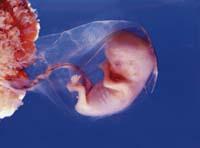Stem cells in the body of diabetic children

During pregnancy, several stem cells cross the placenta and penetrate the body of the fetus. Earlier scientists believed that it destroyed the immune systems of the fetus, but then demonstrated that it was not always like this, that is, that some cells are integrated into the body of the fetus and that they are able to survive later (microchemism).
As the scientific journal PNAS has published, these cells can be beneficial to the child in some cases. Specifically, the researchers have analyzed children with type 1 diabetes and their siblings. Among the diabetics, more than half had DNA from their mother in blood, which means they had cells from their mother. In healthy brothers, only a third had their mother's DNA. Thus, the researchers concluded at first that the stem cells damaged the cells of the child's pancreas and therefore did not produce insulin.
Later, however, they have shown that diabetic children have stem cells inserted into the pancreas, which produce insulin. Therefore, they are favorable. Furthermore, researchers believe that thanks to these cells, the child's pancreas can partially recover.





